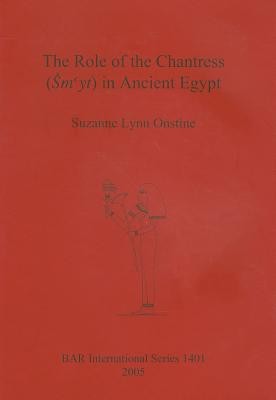
- We will send in 10–14 business days.
- Author: Suzanne Lynn Onstine
- Publisher: British Archaeological Reports Oxford Ltd
- ISBN-10: 1841718408
- ISBN-13: 9781841718408
- Format: 21.6 x 29.7 x 2.3 cm, softcover
- Language: English
- SAVE -10% with code: EXTRA
The Role of the Chantress (Smyt) in Ancient Egypt (e-book) (used book) | bookbook.eu
Reviews
Description
This study looks at what is meant by the term 'Smyt', or 'chantress', in ancient Egypt (including New Kingdom, Third Intermediate Period, Middle Kingdom, Late and Ptolemaic Periods). Very little is known about the specifics of the title or the types of people who held it. Both men and women could hold the title, but the female version is by far the more prevalent and they form the focus of this research. Studies investigating the status of non-royal women are a fairly recent phenomenon, but the abundance of data from private tombs and monuments concerning the women who held the title Smyt makes these women ideal subjects for a study of non-royal women within their cultural and historical contexts.
EXTRA 10 % discount with code: EXTRA
The promotion ends in 20d.20:44:15
The discount code is valid when purchasing from 10 €. Discounts do not stack.
- Author: Suzanne Lynn Onstine
- Publisher: British Archaeological Reports Oxford Ltd
- ISBN-10: 1841718408
- ISBN-13: 9781841718408
- Format: 21.6 x 29.7 x 2.3 cm, softcover
- Language: English English
This study looks at what is meant by the term 'Smyt', or 'chantress', in ancient Egypt (including New Kingdom, Third Intermediate Period, Middle Kingdom, Late and Ptolemaic Periods). Very little is known about the specifics of the title or the types of people who held it. Both men and women could hold the title, but the female version is by far the more prevalent and they form the focus of this research. Studies investigating the status of non-royal women are a fairly recent phenomenon, but the abundance of data from private tombs and monuments concerning the women who held the title Smyt makes these women ideal subjects for a study of non-royal women within their cultural and historical contexts.


Reviews